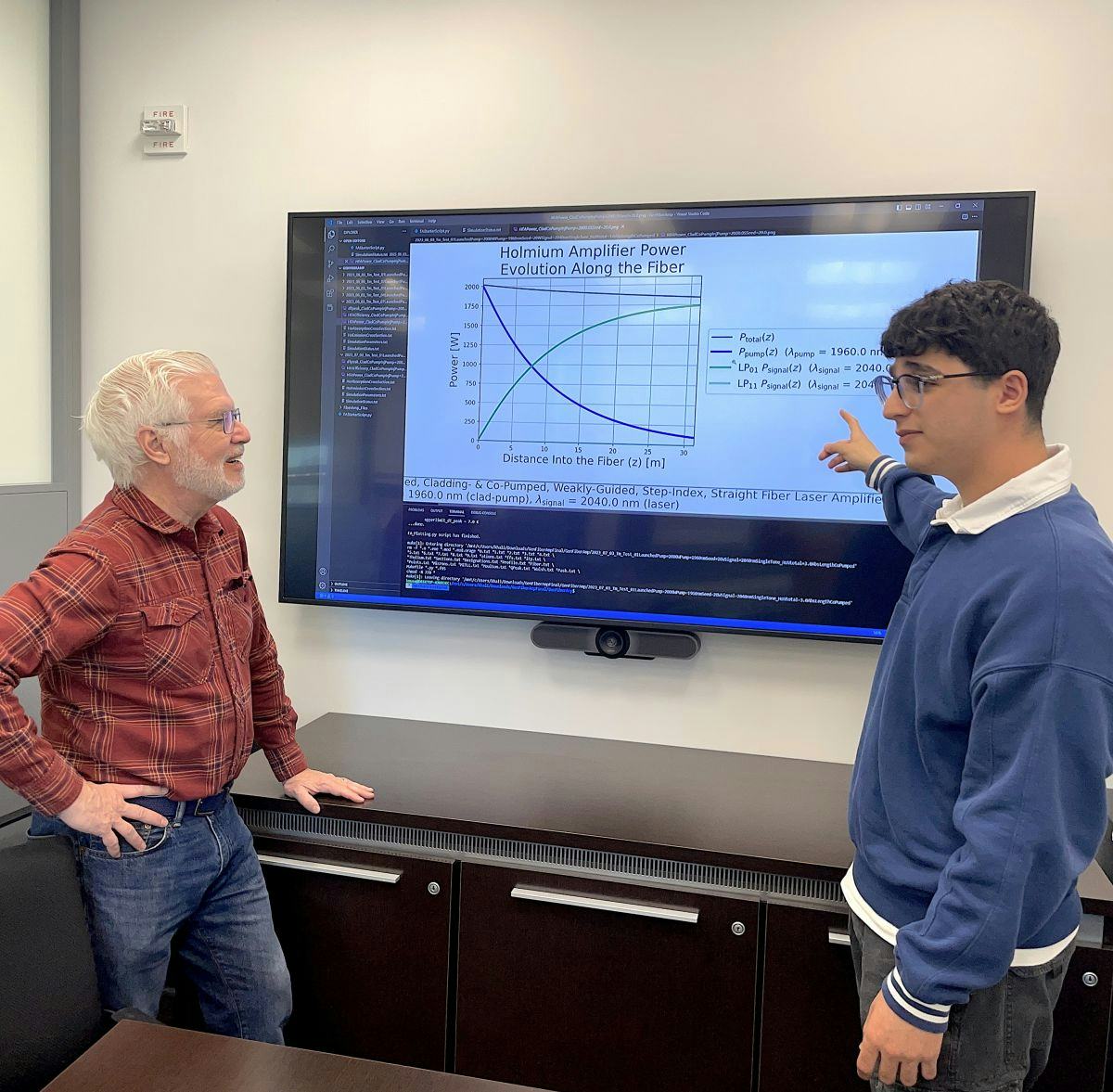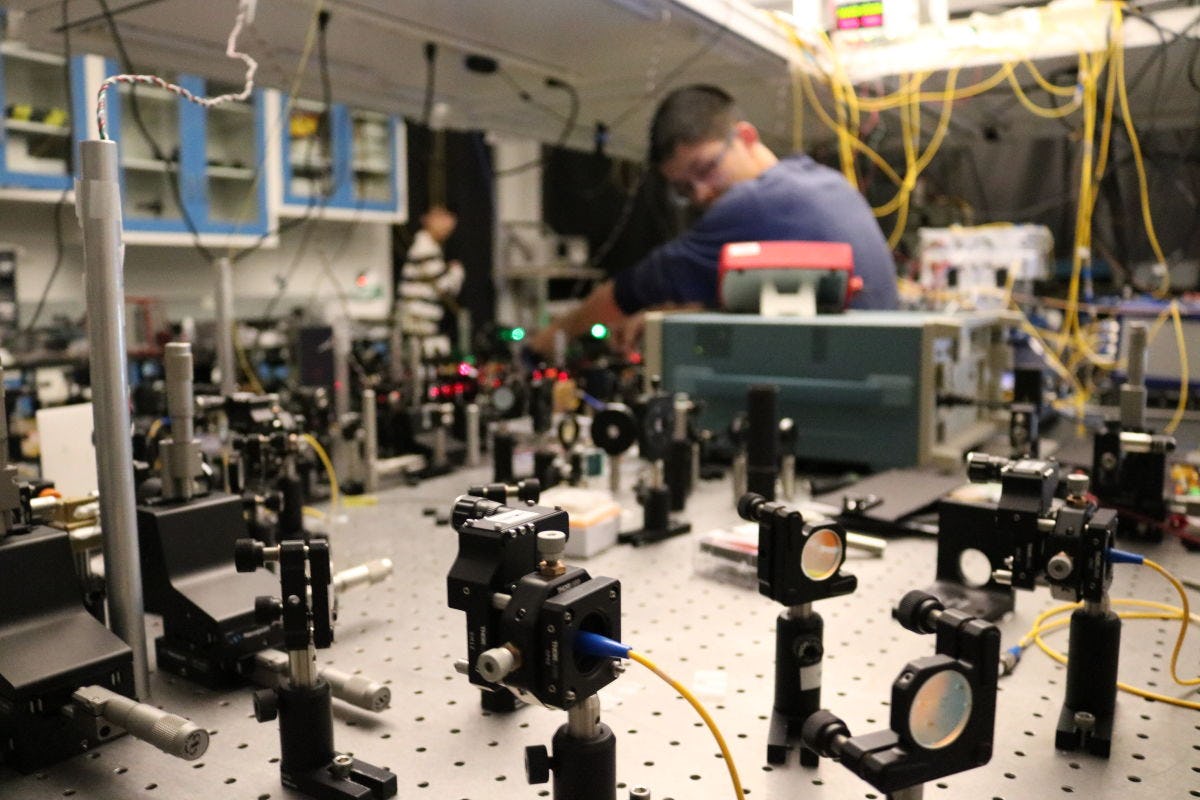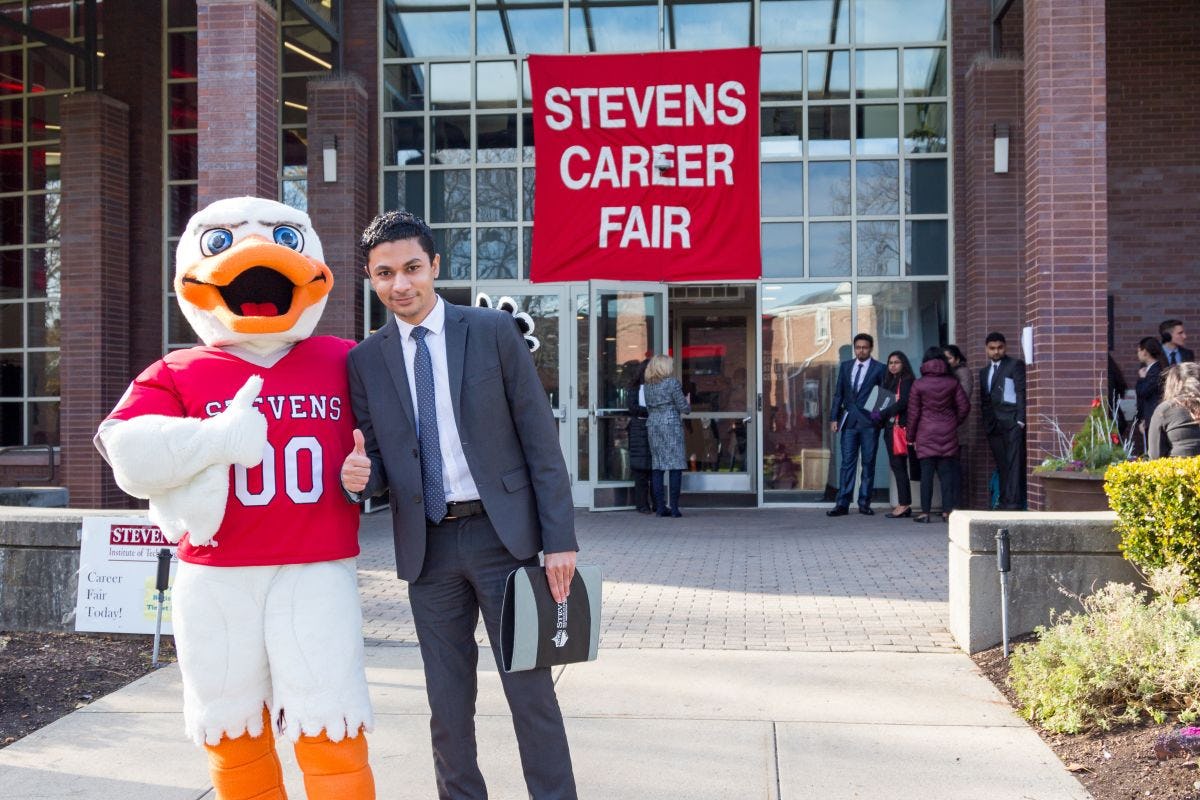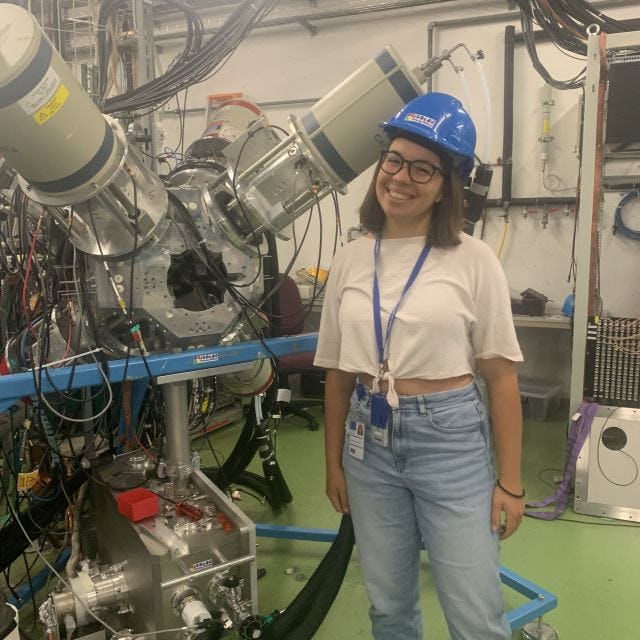
Bachelor's Degree in Physics
Immerse yourself in applied physics research and quantum information sciences in the physics bachelor’s program at Stevens.
Not only do the laws of physics govern the universe, they drive many rapidly-advancing fields that shape modern daily life, such as information technology, medical technology, microelectronics, and telecommunications.
The physics bachelor’s program at Stevens prepares you for a career in industry or research in one of these areas. Our program lays a solid foundation of both theory and practice through rigorous classroom instruction and hands-on research experience in one of several state-of-the-art research laboratories. You’ll be immersed in optics and quantum information research early on in your studies, and participate in a six-semester design sequence called SKIL (Science Knowledge Integration Ladder), where you will work on projects that foster independent learning, innovative problem solving, collaboration, teamwork, and knowledge integration under the guidance of a faculty advisor.
The Bachelor of Science program in physics is accredited by the Middle States Accreditation Board.
Concentrations
Astrophysics
Photonics
Quantum Engineering
The Stevens Advantage: Hands-On Learning, Real World Experience
At Stevens, we train scientists to think like engineers. Our research-oriented, hands-on educational approach encourages out-of-the-box thinking and imbues interdisciplinary understanding of the deep relationship between engineering and science. Learn more about what makes an engineering education from Stevens a unique experience:
A Research-Focused Curriculum: a unique, research-oriented, hands-on approach to learning that embeds undergraduate students in research groups where they learn cutting-edge technology as a team
Senior Research Capstone: a team or individual capstone project working on real research projects solving real world problems, potentially in collaboration with a real company
State-of-the-Art Research Labs and Facilities: build, tinker and test your designs in Stevens' MakerCenter, Prototype and Object Fabrication Lab, or numerous other research facilities
Undergraduate Research Opportunities: our research-oriented curriculum gives you in-the-lab experience while you're still an undergraduate student. Each department at the School of Engineering and Science offers students opportunities for research over the summer with a faculty member of your choice, and Stevens' interdisciplinary Undergraduate Research Program that enables you to get valuable lab experience with researchers across departments and schools within Stevens.
More opportunities for Stevens undergraduate students include:
Double count undergraduate course credits toward a graduate degree and earn your master's faster – in just five years through Stevens' Accelerated Master's Program >
See what it's like to be a physics student at Stevens by visiting the links below.
Putting You on Track for Professional Success
The physics bachelor’s program develops in-demand knowledge and skills to put you on track for career success. Our graduates have a wide range of career opportunities beyond the pursuit of a traditional graduate degree in physics, including employment in industries such as telecommunications, optics, finance, medical technology, or military. Those who choose to further their physics education are accepted into some of the best graduate programs in the country. Career opportunities include:
Government
Aerospace
Research Labs
Energy and Utilities
Education
Military
Communications Technology
Manufacturing
Petrochemicals
Potential hiring organizations include companies like: Genesis Research, Thorlabs, Picatinny Arsenal, MIT Lincoln Laboratory, Mezocliq
Learn more about careers in physics and optical engineering >
A Tech Forward Education
Undergraduate Programs Facts & Statistics
The Job Market for Physics Degrees
Related Programs
Bachelor's Degree in Mathematics
Learn the foundational mathematical concepts needed to help advance science and technology, business and economics, health and medicine, and other aspects of our modern society.
Engineering Bachelor's Program
Gain valuable engineering design skills and also specialize in naval engineering through the Engineering Program at Stevens Institute of Technology.






